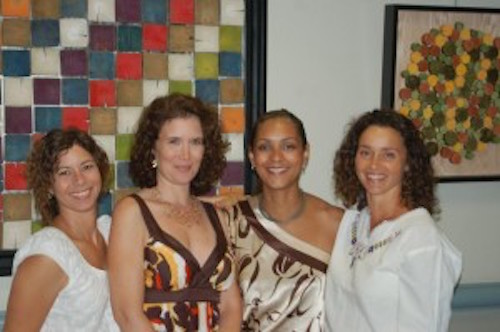The pursuit of blending in was an obsessive reality of my first few decades. As a Caribbean immigrant of successful parents, I fit neither into the urban neighborhood where we began, or the rich white suburbs we moved to. I changed the shape of my body, the way I spoke, my interests and personality as needed. I chose the friends who would never acknowledge my differences. I dated the boys who would put me into the right group of friends. To belong was the only worthwhile objective.
I was blind to the futility of my actions. Instead a fantasy life was seeded, warmed by the friction of one life rubbing against another. There were so many stories, so many lies, in my attempt to align the reality of my life with whatever was around me. My family became richer, poorer, more or less ethnic to suit my needs. My achievements shrunk and grew, depending on the audience. I rewrote the past and present with the zeal of a caffeine-fueled editor.
This was the way it was, when you arrived on the shores of a new country and had to assimilate. Pretending was a family pastime. When my mother pretended that I had completed my PhD (instead of dropping out), we all went along with it, so used to the fictionalization of our lives.
People joked that I would make a great spy, my ability to morph myself into nearly any environment as the quintessential party trick. I could hobnob with the rich and famous, trip with the ravers, protest with the rebels, and philosophize with the intellectuals. Like a chameleon, I could change my spots to stripes, be bold or invisible. What did you want me to be? That’s what I would be. I made myself into a guitar string, awaiting the external vibration to know how to sing.
When I first began to speak, I used the voices of my teachers, the voices of my elders, any voice but my own. I regurgitated others opinions like a good little robot. I could process, analyze and repackage. I was not here to create or produce.
My voice, my real voice, had no consequence, no meaning, no importance. It was the scar that held me back from ever fully incorporating, and had to be hidden at all costs.
Approaching my 40th birthday, I was told by the man who would become one of my most important teachers that great things were never achieved by those consumed by fitting in. We were meant to fit out. We were the change-makers and the voices of transformation.
These words were my siren song, like nothing I had ever heard, or contemplated. They began, so so slowly, to shake loose the cemented ideas I had about what it meant to exist. What it meant to deserve to exist.
I longed to be an agent of change. I hungered to understand why I was here. I craved a meeting with the woman who was actually living inside my body. To do so would mean shedding all my attempts at belonging, and embracing the excruciating act of being. Which never comes easily, as we know.
The sound of my own voice, screaming, raging, stripping off my own impotence and unimportance, came to me as life brought me to my knees. I could as much get up as I could stop the torrent of expression. There passed a hazy stream of days during which I could not write or type fast enough to record a life-time’s worth of thoughts. I captured what had never been admitted, experienced what had been rewritten and remembered what had been erased.
Finally, the words came, and so far they have not stopped. Letting what was inside me take space in the outside world was one of the most powerful actions I have ever taken.
My voice went from being an apparition, so easily dismissed, to the bundle I carry in my arms, always grateful to feel its weight.
And the day finally came when I could claim: I am unique, I am a creator, I am heard.
What has been YOUR journey to your true voice?

One response to “Assimilation, Integration, Expression”
[…] wish I could get back all those years I spent trying to fit in. To what? Average, normal, mediocre. Ick. Let your freak flag […]